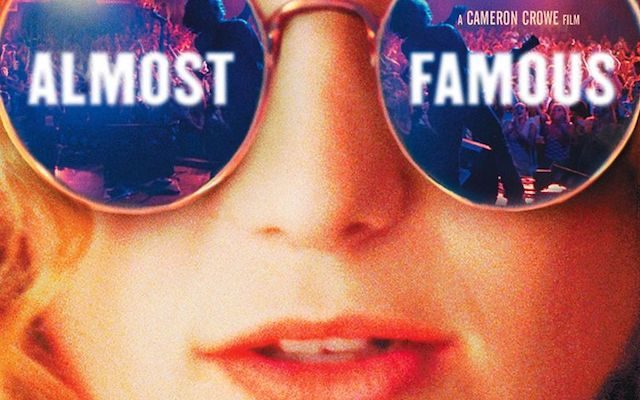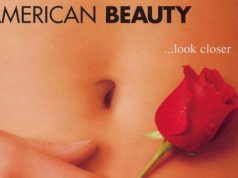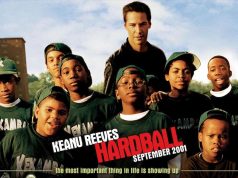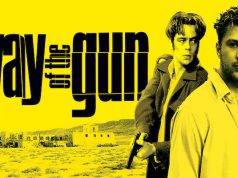
What to make of “Almost Famous”? It’s a cult classic in the sense that it developed a passionate following despite being unsuccessful at the box office. But it got almost universally positive reviews and four Oscar nominations (including a win for its screenplay), and that kind of official recognition tends to disqualify movies from the “cult classic” designation. So maybe it’s just an “under-appreciated gem”?
As I’ve watched the adoration swirl around this movie for 11 years, I’ve felt like I was missing something. My review from September 2000 indicates I thought it was terrific, but it didn’t stay with me at all. It seems like I had the opposite reaction from everyone else: instead of ignoring it at first and growing to love it, I loved it at first and grew to ignore it. If it is a cult favorite, am I part of the cult?
What I said then:
“‘Almost Famous,’ in fact, is almost perfect. Obviously crafted with a great deal of love … Crowe’s story is about music, doing what you love, family, loyalty and self-worth. The humor in it comes naturally, with no set-ups or punchlines; just the regular flow of comedy that comes from real life…. McDormand is fantastic as the worried mom…. Hudson is no less remarkable as the world’s biggest groupie, a heart-breaking character who gives the film it’s wistful poignancy…. New-comer Patrick Fugit is impressive, too, as William…. Crowe expertly avoids the pitfall of many ‘labor of love’ projects, where the finished product is only interesting to the guy who made it. The film may not resonate with everyone — there is a strong emphasis on rock ‘n’ roll, with little attempt to universalize it — but it will surely strike a chord of nostalgia with any open-hearted viewer.” Grade: A- [complete review]
The re-viewing:
I chose the theatrical version of the film, not Crowe’s special “bootleg cut,” which is 40 minutes longer. It’s not that I doubt those who say it’s better than the theatrical cut; it’s just that I wanted to recreate the original experience. (Also, I kind of doubt those who say it’s better.)
You can see why Crowe won an Oscar for his screenplay. “Best screenplay” usually means “best dialogue,” and this one has plenty of sharp, well-written lines. “I didn’t invent the rainy day, man. I just own the best umbrella.” “Listen to ‘Tommy’ with a candle burning, and you will see your entire future.” “I am a golden god!” (They’re better in context.) It’s a verbose film — in a good way — and the conversations have been crafted with care, meant to be interesting in their own right in addition to advancing the plot.
But there’s some lame, lame stuff in here, too, including two instances of the Ironic Historical Statement. That’s where a character in a movie that’s set in the past says something that is innocuous to the other characters but allegedly funny to the audience because of what has happened since then. Jimmy Fallon’s manager character says, “If you think Mick Jagger will still be out there trying to be a rock star at age 50, then you are sadly, sadly mistaken.” (Get it? Because Mick Jagger was 57 when this movie came out, and he was indeed still trying to be a rock star!) The editor of Rolling Stone speaks in awe-struck tones about his fancy new 1973 modem: “It’s a very high-tech machine that transmits pages over the telephone! It only takes 18 minutes a page!” (Zowie!) That kind of joke is almost always cheap and out of place unless it’s in a broad, silly comedy, which “Almost Famous” is not.
Those are minor complaints. I have a bigger problem with the basic implausibility of the story: a 15-year-old gets assigned a 3,000-word Rolling Stone article without meeting or even having a substantial conversation with the editor, and then tours with a band for three weeks without any discussion of expenses or liability, or without even actually demonstrating that he is, in fact, on assignment for Rolling Stone. I dismissed these concerns in my review on the grounds that the story was semi-autobiographical; i.e., it doesn’t matter how unbelievable it sounds, because it really happened to Cameron Crowe! But it didn’t really happen. Crowe profiled The Allman Brothers Band for Rolling Stone (the experience that seems to have formed the basis for the movie), and he was indeed the magazine’s youngest contributor — but he was an 18-year-old college student at the time, not a 15-year-old high school senior. There’s a world of difference.
And anyway, how in the hell does his overprotective, rock-‘n’-roll-hating mother let him go on tour with a rock band during the school year? Even most cool moms wouldn’t let their 15-year-old boys do that. This isn’t a trifling detail, either. It’s the whole crux of the film!
That being said, I was impressed the second time around with Frances McDormand’s performance as the mom. I wrote in 2000 that she was “utterly realistic — no easy feat, considering how over-the-top she is in her overprotection.” I agree with myself today. McDormand provides a fine example of a good actor improving so-so material.
Oh! A fun game you can play with “Almost Famous” is Spot the Actor Who Wasn’t Famous Yet. In addition to gimmes like Zooey Deschanel (this was only her second film role), you’ll get Rainn Wilson, Eric Stonestreet, Michael Angarano (as young William), Bijou Phillips, Jay Baruchel, Nick Swardson (as a screaming David Bowie fan), and Mitch Hedberg.
Do I still love this movie?
I like it well enough, but “love” is a strong word. Crowe is great at capturing the way popular music makes people feel, and his depiction of the rock world in 1973 feels authentic. The acting is strong, too, and the central characters vividly portrayed. (You may recall that this was the first and last time that Kate Hudson impressed anybody.) I have no problem declaring it a likable and infectious entertainment. But great? No. Not even almost. Grade: B
— Film.com




